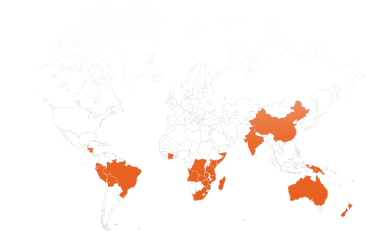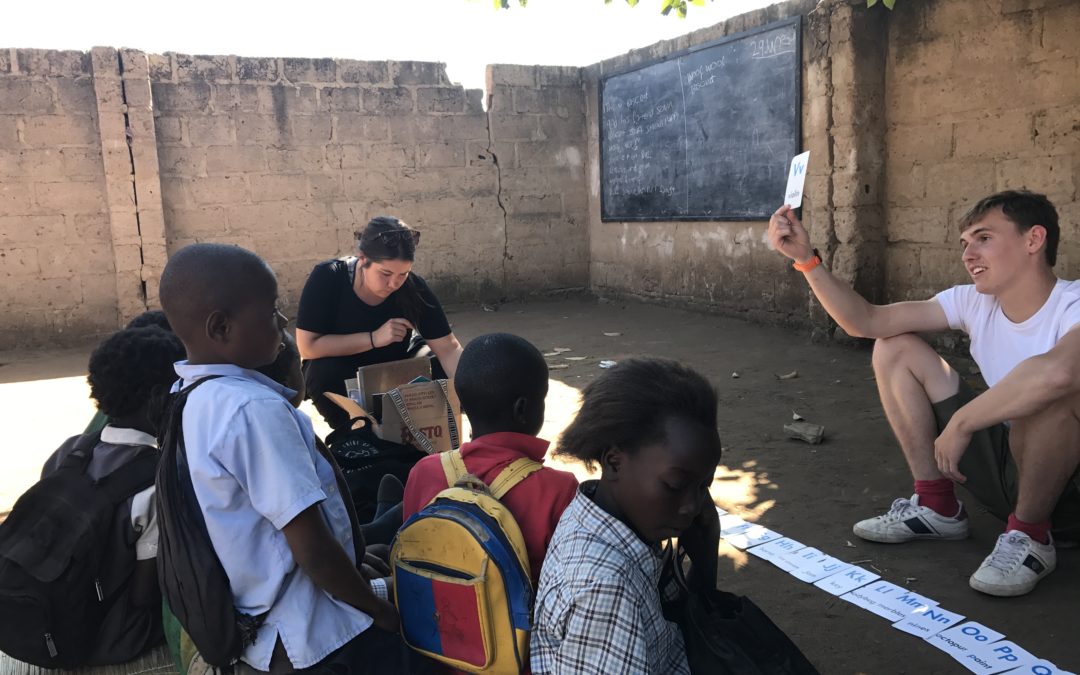Africa is an amazing continent – beyond anything you can read about or imagine. The landscape so diverse, from the rich red clay soils to magnificent waterfalls, arid savannahs to humid wetlands. And as the oldest inhabited continent, rich and diverse cultures carry out traditions that stretch back thousands of years alongside modern contemporary lifestyles.
Locals often welcome visitors with open arms as they invite you to share in their culture and learn about their communities. If you want to travel within Africa and get involved with development and conservation initiatives, becoming a Kaya volunteer is a great way to do it. As a responsible traveller, when you come to volunteer it’s cannot be with the idea of “saving Africa”, reinforcing ideas of colonial saviourism for people you believe are in need. It’s about joining in to learn from the people about the country and its local customs and adapt to their thinking and ways of doing things. Volunteers need to be aware that they are there to help with the work already undertaken by locals.
Some African communities do still have very limited resources. Many are struggling with access to water, infrastructure, education, and sometimes food. That said, local groups are working on development initiatives addressing the most pressing issues for their communities, and they don’t NEED volunteers to get their work done – although sometimes an extra helping hand can go along way. It is in this way that we say that Africa’s greatest need for volunteers is to give foreigners the opportunity to discover the real delights of the continent behind the window of tourism and share their authentic stories.
- Lend an extra hand – Volunteers provide capacity to limited resources settings like schools, elderly care centre and clinics amongst others. Many schools are struggling to find teachers due to low pay and lack of qualifications. Volunteers can help provide resources and support local staff to help raise literacy rates.
- Give a global perspective – Volunteers contribute a worldly view to the local children and expose them to new games and new concepts. For example, when you go out in the community to do litter picking, you will find that many children will join into the activity helping them understand the importance of correct waste disposal.
- Lead by example – Volunteers guide the community leaders and their people by educating them on the need to protect our environments, preserving our wildlife and educating our children. Volunteers help shape the future for the next generation.
- Contribute to the local economy – Every time a volunteer is abroad and buys artifacts, souvenirs, local foods, take local transportation, etc, this is contributing to the local economy of the country and growing their GDP.
- Spread the word – Volunteers are able to inform their home countries on their experience and the real local situation. Storytelling is the most powerful way to communicate and engage the west on the local issues and challenges they are encountering and the hard work being done locally to improve those lives and environments. If you experience it, people are more likely to be touched by your stories about it.
Regardless of your area of expertise or interest, you will find a project that suits you in Africa as there are many volunteering needs. Check out our Africa projects or call us to speak to a placement advisor and get recommendations.


Recent comments